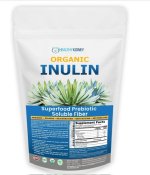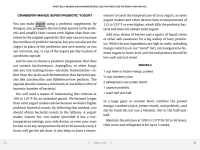Yvonne Smith
Moderator
One if the things I discovered when I learned about my heart failure was that the heart problems also caused kidney problems, and I had kidney failure along with the heart failure.
At one time, my kidney function on my GFR was down to about 34GFR, which is really low. Now, I take a powder called “Kidney Restore”, and along with trying to have a healthy diet, it has helped my kidney function a whole lot.
The last time i had labs done, my kidneys were almost out of kidney failure, which has to be above 59GFR, and mine was up to 57.
Just like with the heart failure, the doctors told me that the kidney failure would never improve; but changing to a healthy Whole Foods eating plan, and extra supplements has helped both my heart and my kidneys.
Here is the kidney supplement that i use.
At one time, my kidney function on my GFR was down to about 34GFR, which is really low. Now, I take a powder called “Kidney Restore”, and along with trying to have a healthy diet, it has helped my kidney function a whole lot.
The last time i had labs done, my kidneys were almost out of kidney failure, which has to be above 59GFR, and mine was up to 57.
Just like with the heart failure, the doctors told me that the kidney failure would never improve; but changing to a healthy Whole Foods eating plan, and extra supplements has helped both my heart and my kidneys.
Here is the kidney supplement that i use.


